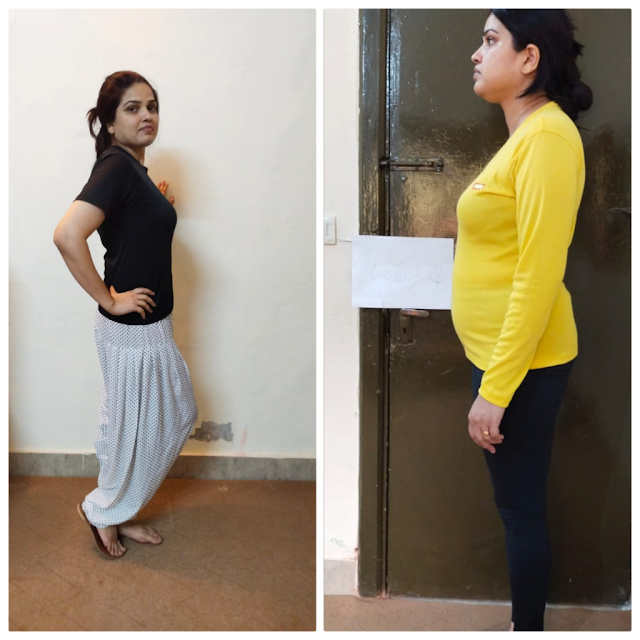Elevate Your Health, Elevate Your Ramadan - Get Our Weight Gain Plan
Today

Gain weight the right way with our specially designed Ramadan diet plan for women.
Fasting for long periods of the day and then
eating lots of sweets and high-calorie foods at Iftar can cause many people to
gain weight. But, if you are a woman, this is one of the unhealthiest ways to
gain weight.
Our expertly designed women's weight gain
plan for Ramadan ensures you'll gain weight in all the right places without
sacrificing your overall health or nutrition. Our plan is specially designed
for women who want to gain a healthy weight while fasting during the holy month
of Ramadan.
Among the benefits of Ramadan is a weight-gain diet plan for women
Expert guidance from professional
nutritionists, nutritionists, and trainers
Meal plans tailored to your needs,
preferences, and dietary restrictions
Gain weight and muscle mass in all the right
areas of your body
More energy throughout the day, and more
focus
Better overall health and lower risk of
chronic diseases
Very easy-to-follow meal plans that fit your
lifestyle and schedule.
Weight Gain VS Women’s Weight Gain: What’s the difference?
There are some notable differences between
men's and women's bodies when it comes to weight gain. These differences can
affect how each gender approaches weight gain and weight loss, and you need to
understand them to create an effective diet plan.
Body fat storage
One of the most important differences is how
men and women store body fat. Women often accumulate fat around the thighs and
hips, while men are more likely to have fat in the abdomen. Women also have a
higher percentage of body fat than men, meaning that even at healthy body fat
levels, men and women have different levels of fat. This difference is due to
hormonal differences between men and women.
Fat metabolism
Studies show that fat cells in the abdominal
area are more responsive and release fat more easily than fat cells in the hip
and thigh areas. Because men have more abdominal fat and women have more hip
and thigh fat, men may be able to store fat more efficiently. However, research
also suggests that women use more fat for energy during light to moderate
exercise than men. This means that women may need to adjust their exercise
routine to effectively burn fat.
Muscle mass
Muscle mass is another significant
distinction between men and women. Muscle tissue requires more energy than fat
tissue, and males have greater muscle than women. This indicates that males can
typically consume more calories without gaining weight and that they expend
more energy than women. Women who engage in strength exercise to gain muscle
will burn more calories and have a faster metabolism.
Food preferences
Lastly, the kinds of food that men and women
love to eat vary. Men are more prone to eat meat-based diets, while women are
more likely to eat dairy products and sugar-filled items. Women are more prone
to turn to emotional eating as a coping mechanism for stress, which may
interfere with their ability to keep a healthy weight. To design a diet plan
that works for them, women must be aware of their dietary choices and emotional
triggers
What foods should be avoided for healthy weight gain?
To ensure healthy weight gain, certain
practices must be avoided. Some things to avoid include eating junk food like
chips, sugary sodas, donuts, and candy. While these foods can help with weight
gain, they are not the healthiest way to do so. Junk food accumulates around
the stomach, which can increase the risk of heart disease and diabetes.
Instead, it's recommended to eat foods rich in healthy muscle-building
nutrients like protein. Additionally, to avoid feeling too full, try not to
drink water or other liquids 30 minutes before dinner, and reduce the amount of
liquids you consume after breaking the fast.
Sample Women’s Diet Plan during Ramadan for Healthy
Weight Gain
Sehri:
Oatmeal with whole milk, slivered almonds,
and chopped dates
Greek yogurt with honey and mixed berries
Whole grain toast with avocado, scrambled
eggs, and a side of fruit
Banana, peanut butter, protein powder, and
whole milk smoothie (no added sugar
Iftar:
Grilled chicken with some roasted vegetables
and brown rice
Lentil soup with hummus, pita bread, and a
side of tabbouleh salad.
Baked salmon with quinoa and grilled
asparagus
Vegetable curry with brown rice and a side
of Nan roti
Let GSFR Help You Create the Best Diet Plan for Ramadan!
Personalized Meal Plans: Our customized meal
plans make it super easy to achieve your weight gain goals during Ramadan. Our
team of nutritionists will tailor a Ramadan diet plan for weight gain that
meets your specific needs, taking into account your individual needs and
dietary restrictions. We will provide a comprehensive meal plan for the entire
month including nutrient ratios, macros, and calorie intake.
Expert advice: With our team of experts, you
can rest assured that you're getting the best advice on healthy food choices
during Ramadan while gaining weight. Our experts will guide you in adding
healthy snacks and supplements to your diet to help you reach your goals.
Exercise Plan: Our customized exercise plan
is tailored to your fitness level and goals. We understand that your Ramadan
schedule can be tough, so we've included exercises that can be done both at
home and at the gym. With our guidance, you can be sure you'll be getting the
most out of your workout.
Our
team of professionals will contact you regularly, set achievable goals, and
provide tips on how to stay active throughout Ramadan. With our support, you
can achieve your weight gain goals with confidence.







0 Comments